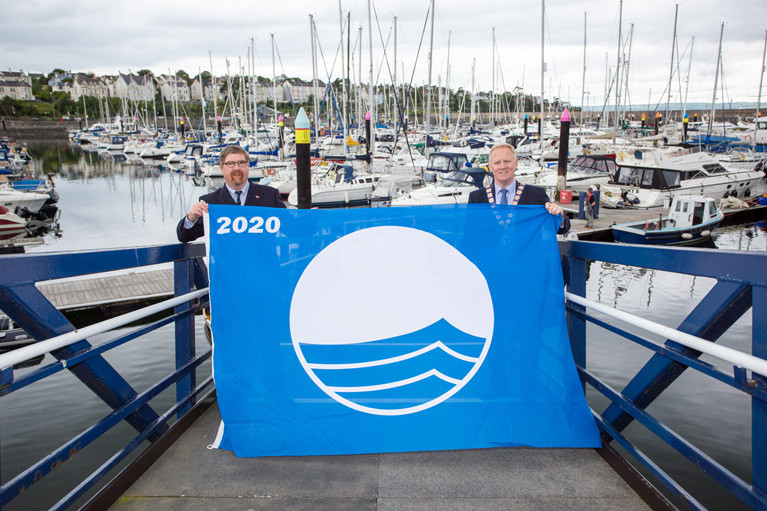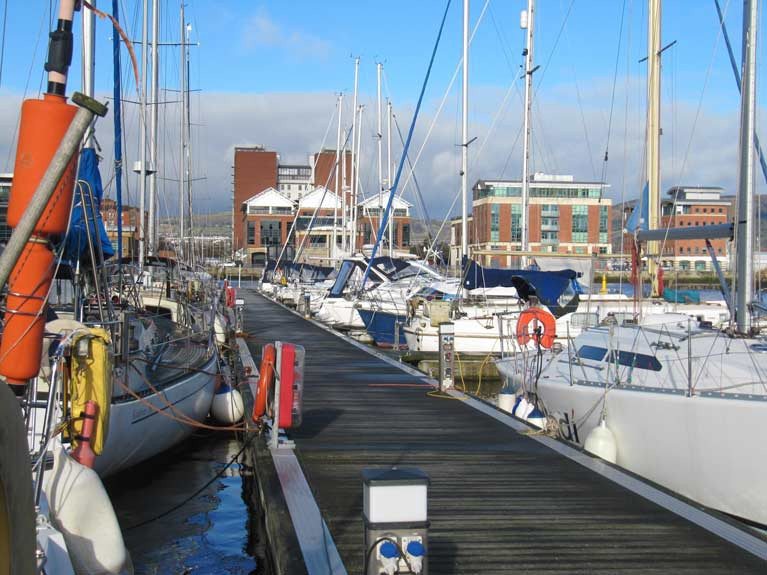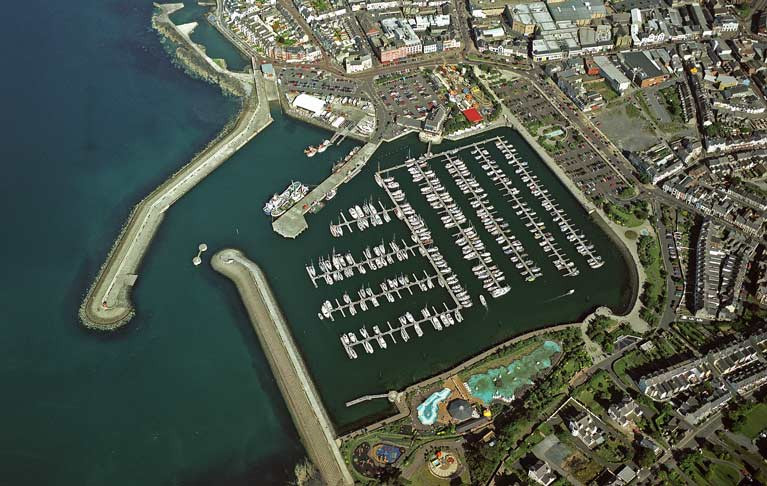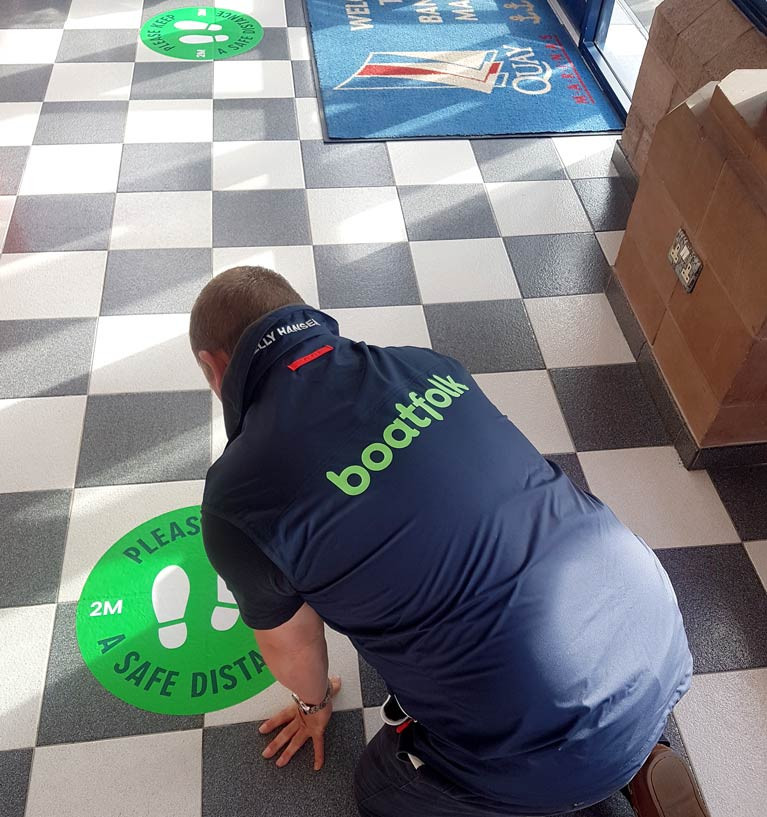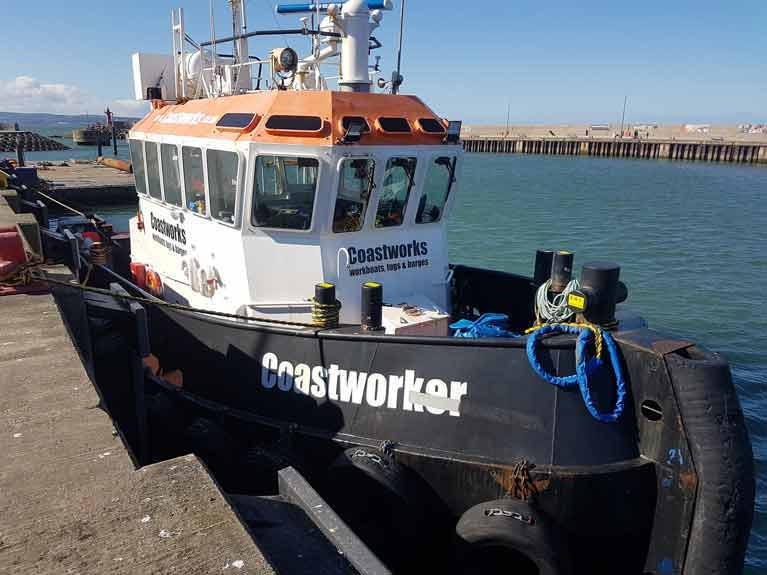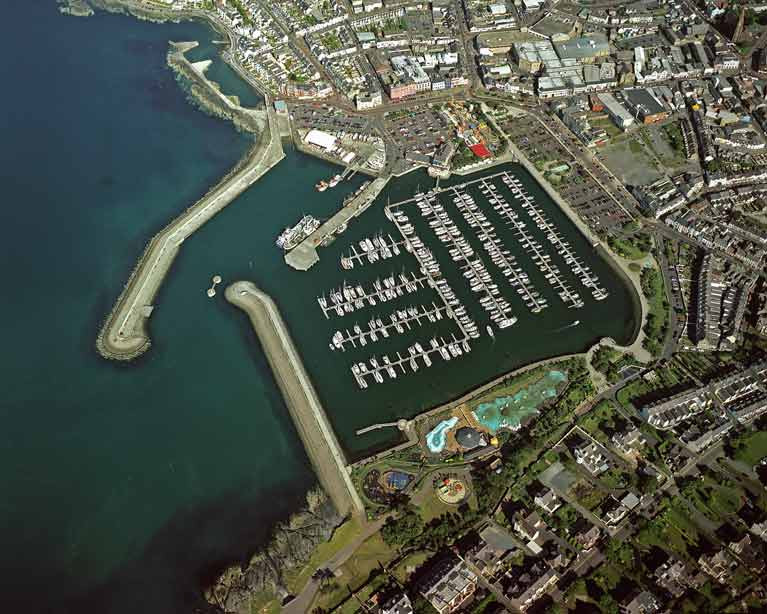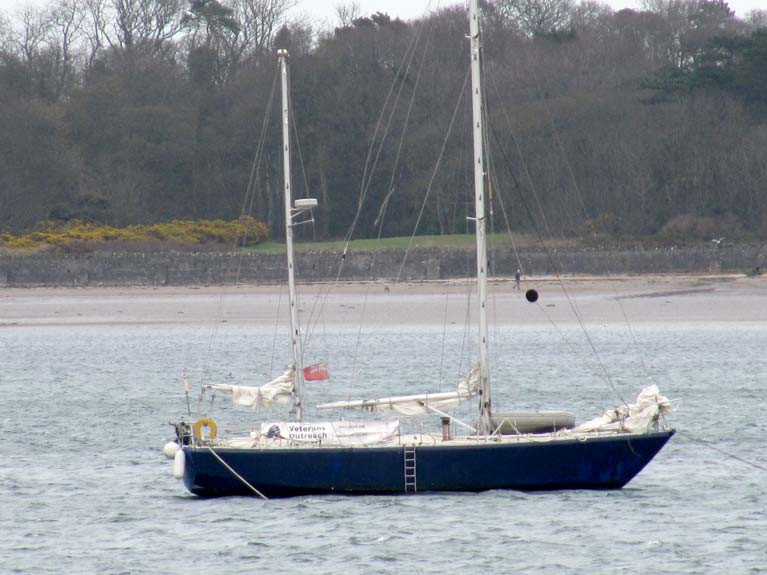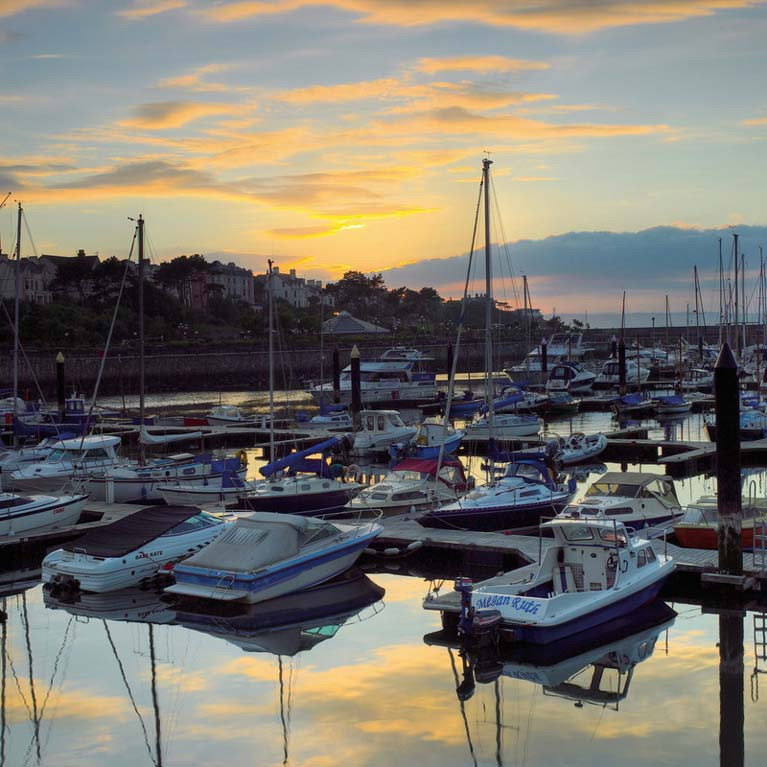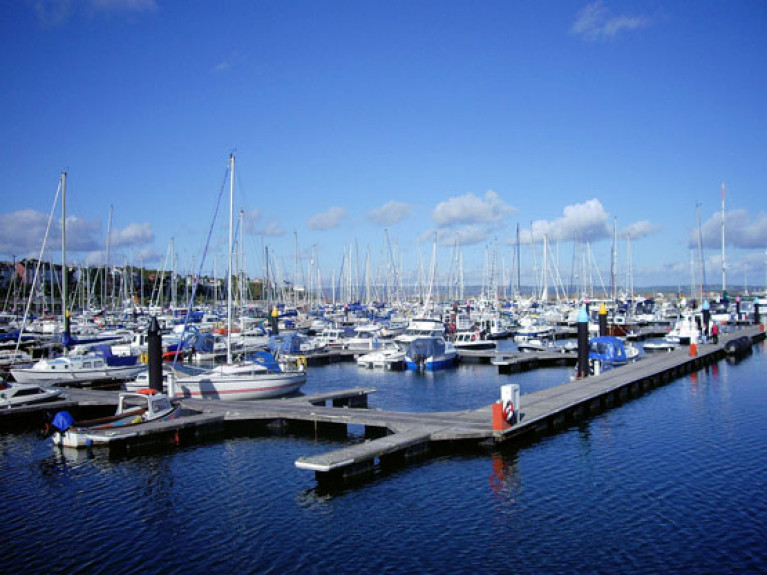Displaying items by tag: Bangor Marina
The Ards and North Down coastal area has done well by winning awards for excellence in facilities, environmental management, environmental education, accessibility and safety.
Bangor Marina has been awarded the internationally renowned Blue Flag for the 2020 season. The Blue Flag award is certified by the Foundation for Environmental Education (FEE) and is delivered in 47 participating countries.
The beaches at Ballywalter, Cloughey, Groomsport and Millisle, managed by Ards and North Down Borough Council, along with Crawfordsburn beach, which is operated by Northern Ireland Environment Agency, have received the prestigious Seaside Award. The Seaside Award is the national standard for beaches across the UK. This programme ensures visitors of a clean, safe, attractive, and well-managed beach with the facilities provided being appropriate for the location of the beach. Helens Bay, also operated by Northern Ireland Environment Agency received a Green Coast Award, which recognises an agreement between the operator and the local community to protect and promote a natural beach. Green Coast Award beaches can also be found in the Republic of Ireland and in Wales, but due to their more natural state, may not be flying a flag.
 Helens Bay Beach in Bangor received a Green Coast Award
Helens Bay Beach in Bangor received a Green Coast Award
Mayor of Ards and North Down, Councillor Trevor Cummings commented: "Our borough encompasses the southern shore of Belfast Lough, the Irish Sea coast and most of the perimeter of Strangford Lough, giving us 115 miles of stunning coastline. It is fantastic that so many of our beautiful seaside locations have been recognised in this year's Beach and Marina awards. It is a fitting tribute to the work of both the Council employees and the many groups of volunteers who together strive to keep our coastline clean, tidy and welcoming for visitors.
Dr. Ian Humphreys, CEO of Keep Northern Ireland Beautiful, stated: "We are delighted to see the high standards at so many of our local beaches continuing into 2020. Our fantastic beaches are an important part of the natural wealth that we can all enjoy as a community. This summer, it is important to follow guidance from the public health authorities around social distancing when visiting local beaches. Furthermore, it is up to all of us to ensure that we leave these beauty spots in good condition. I am appealing to everyone to make sure that they leave no trace on our local beaches by putting litter in the bin."
Kevin Baird, Harbour Master and Marina Manager in Bangor, has posted a substantial update to the state of harbour and marina opening dates in the North of Ireland and beyond. The situation continues to be fluid.
Among the notable changes to the Marina update on afloat.ie on 20th June, is that Bangor will be able to accept visitors travelling from any part of the Common Travel Area (UK and Ireland) from Friday 26th June. This includes overnighting on your boat. And Belfast Harbour Marina, at present only open to resident berth holders only, is planning to open early next week. Rathlin Island which is at present closed will update next week.
Isle of Man marinas
The news from the Isle of Man is that vessels may transit through IOM waters and lie at anchor but you are not permitted to go ashore – you will be put into quarantine which is strictly enforced. Islanders who travel beyond the IOM borders are not permitted to return unless they hold a key workers exception certificate which has been issued by the IOM government.
Scottish marinas
Scottish Marinas and Harbours open to visitors from 4th July.
Welsh marinas
Wales is yet to confirm when the country will open up to visiting leisure craft, but this is not likely to be before 13th July.
Bangor Marina Ease COVID Restrictions on Belfast Lough
On 15th June the Northern Ireland Executive announced further relaxations to the Coronavirus Regulations and subsequently Bangor Marina updated its information yesterday on Northern Ireland Marinas and Harbours. These developments make some changes to the information here.
From 26th June, caravan parks, campsites and self-contained tourist accommodation will be able to reopen. With this in mind, the Marina believes that from 26th June, leisure boat owners should be able to overnight onboard their vessels. The same goes for Carrickfergus and Glenarm Marinas.
The position with Belfast, Ballycastle and Portrush remains the same - open to resident berth holders only, no visiting boats and no overnighting. Rathlin and the Copeland Islands remain closed. In Strangford Lough, Portaferry status is the same - open to resident and visiting boat owners, no overnighting until further notice. Further round the Down coast Ardglass is only open to resident berth holders only and no overnighting.
Isle of Man Marinas
Across the Irish Sea the Isle of Man borders are closed so there is no access to Peel, Ramsay, Port St Mary, Castletown, Port Erin, Douglas, Laxey, and Derby Haven. Vessels may transit through IOM waters and lie at anchor but you are not permitted to go ashore – you may be put into forced quarantine. On 20th March a 26-year-old arriving on the island by ferry was arrested for failing to self-isolate against Coronavirus. He faces a fine of up to £10,000 and a possible three-month jail sentence.
Scottish Marinas
In an update from Scotland, Portpatrick Harbour remains closed. The marinas at Troon, Largs, Rhu, Kip, Ardfern are open to residents only, no visitors at present, no overnighting. Harbour Master Kevin Baird adds “ We have been told that Scottish marinas and leisure harbours are expected to open 15th July (approx.) but this could change as they progress along the road to recovery”.
Welsh Marinas
And in Wales Aberystwyth, Conwy, Pwllheli, Milford, Neyland, Penarth, Cardiff and Swansea are open to residents only who live within a 5-mile radius of the marina site, no visitors at present, no overnighting. It is understood the Welsh Government plans to offer further guidance on the lifting of COVID19 restrictions.
Bangor Marina To Reopen to Boat Owners on Tuesday
A good news story tonight for berth holders in Bangor Marina on Belfast Lough. In a Notice to Mariners issued this evening (Monday 18th May), Harbour Master Kevin Baird has stated that it is planned to open Bangor Marina tomorrow, Tuesday 19th May at 1200hrs BST.
This follows today’s statement by First Minister Arlene Foster that the following is allowed:-
Outdoor activity where social distancing can occur, and people do not touch shared hard surfaces can also proceed’
It goes on to state that as the safety of berth holders, contractors, and the Marina team is absolutely paramount; to keep everyone safe and protect life, strict safety protocols will be followed. As previously mentioned in afloat.ie on 16th May, measures have been put into place to allow Bangor Marina to open safely. These protocols will be revised over time along the pathway to recovery.
Social distancing - practice and maintain 2m social distancing at all times. Please pass port to port on the pontoons, using the finger berths to get that extra clearance distance.
Access to the Marina is by fob only – priority must be given to those coming up the ramp and exiting the Marina. Please hold at the white lines and observe social distancing at all times.
To comply with Government guidance on not touching shared hard surfaces:-
Toilets & the Marina Reception will remain closed.
- Trolleys will not be available.
- Water Taps – Do not use the water taps.
- Do not stay overnight on board your vessel.
- Refuelling is by prior appointment only. Please adhere to the strict social distancing rules in place and ensure good hygiene practices including the use of gloves whilst handling fuel pump equipment.
It goes on to advise action to be taken if you or any member of your household is presenting with any symptoms of Covid-19 and what the quarantine requirements are.
It is stressed that other local harbours and marinas may not be open. And most importantly, the Notice states “We would strongly recommend that you do not undertake sea voyages at this time”.
The Notice to Mariners will be reviewed daily and the protocol will be updated when the time is right.
Mr Baird goes on to say on behalf of Boatfolk Marinas Limited “Your efforts, patience, and commitment to staying away from your boat throughout this unprecedented period have undoubtedly helped save lives and protected the NHS; and we thank you for that".
Bangor Marina Preps for Reopening on Belfast Lough
Bangor Marina on Belfast Lough may still be closed but Harbour Master Kevin Baird has given berth holders a very clear and concise set of guidance notes detailing what to expect when it reopens and indeed something to look forward to after the weeks of shutdown.
Kevin Baird says “ We have been considering how we may enable berth holders to use the Marina facilities whilst adhering to the Health Protection Regulations and the new government guidelines. The health and safety of you, our contractors and our team is absolutely paramount during this time. Everyone is reminded of the need to practice and always maintain adequate social distancing. We urge berth holders to exercise caution and common sense, only visit their boats in line with the government guidelines and maintain social distancing at all times”.
As there is a lot of guidance available (some of it conflicting) the Marina management has tried to take a common-sense approach in applying them to the Marina and so in a very detailed list entitled *Marina Facilities – what to expect* sets out important points covering every aspect of the facility.
Advice is given on how to handle choke points in Marina access with white lines painted on the ramp and on the ground outside the gates. Potable water hoses have been removed to prevent cross-contamination – you can bring your own. In the marina building, the toilet area will be open with certain restriction and a general waste bin and recycling bins will be placed outside the entrance. Even though the marina reception is open, management would prefer to deal with enquiries by telephone, radio, or email. Guidance is clear on how to navigate the pontoons and on how contractors working on the site should adhere to the safety protocols.
Mr Baird also refers to the RYA guidance on *Going Afloat *which states “Even though there is a clear distinction between what the law requires us to do and what the guidance advises us to do, these are unprecedented times that require unprecedented measures and in modern times considerable personal sacrifice”.
The information finishes “These strange times will not last forever, and the sea will still offer solace when we all need it, and when the time is right”.
Further information from [email protected]
Coastworker Displacement Tug Arrives in Bangor Harbour
Bangor Marina on Belfast Lough may be closed but the Harbour is certainly not out of bounds to commercial traffic and the 120-ton displacement tug Coastworker arrived yesterday afternoon. She will tow the modular barge currently berthed alongside the commercial pier to the Clyde.
The barge was on charter to ABCO, a Lisburn based specialist marine civil engineering service working throughout Ireland, the UK and continental Europe. It was used in their dredging operation of the River Lagan.
It was demobilised at Bangor Harbour as part of a long-standing working relationship with ABCO.
Harbour Master Kevin Baird points out that “not only do we offer a sheltered and safe haven but provide essential services like fuel to Lifeboats, Police, Border Force, Royal Navy, Commercial Fishing Vessels and Pilot Boats.
The Coastworker is 19.5m long with two Caterpillar engines, a maximum speed of 11 knots and a bollard pull of 13 ton.
Is this the Silver Lining for Bangor Marina?
For those boat owners in Bangor Marina on Belfast Lough itching to have access to their boats and get afloat again, the latest communication from Dean & Reddyhoff and Quay Marinas will give some hope. They say that “we’re starting to hear whispers of positive news coming from the UK government. This means we can start firmly looking towards the future”.
Since closure on Tuesday 24th March, staff have been busy looking after the boats and working hard to keep the facilities and equipment in peak condition so that things are shipshape for the return to boating.
As soon as the lockdown is lifted, there will obviously be a huge demand for boat owners to undertake maintenance and repairs. The team at Bangor Marina understand the concerns of berth holders and have put in place a number of additional safety protocols that will allow authorised contractors to work on boats from Monday 4th May 2020.
Dean & Reddyhoff and Quay Marinas have said “ We’re acutely aware of how frustrating the current position is, with boat owners desperately wanting to gain access to their pride and joy. Please rest assured that we will be monitoring government directives on leisure boat owners closely so that we can reunite you with your boats just as soon as is safe to do so. In the meantime, we are continually checking and making sure everything is okay with all boats at our marinas, and we will continue to keep you updated”.
The yacht Aries has been sheltering in Ballyholme Bay from the strong southerly and while Bangor Marina is closed due to COVID-19.
Aries is a one-off 43 ft steel ketch owned by Simon Layton, a former UKSA instructor and friend of David Bridges whose project this is, a fundraising effort for Veterans Outreach Support. VOS is a drop-in service for ex-members of the British Armed Forces, the Merchant Navy and their partners.
The original aim was to sail around the UK in an anti-clockwise direction hoping that before stopovers they would radio ahead and see if anyone from VOS who would like to join them on the next leg. They had hoped to do some speaking at clubs along the way. But by the time they passed Cape Wrath the lockdown had started so unfortunately for the fund-raising effort, there would be no interaction ashore or additional crew.
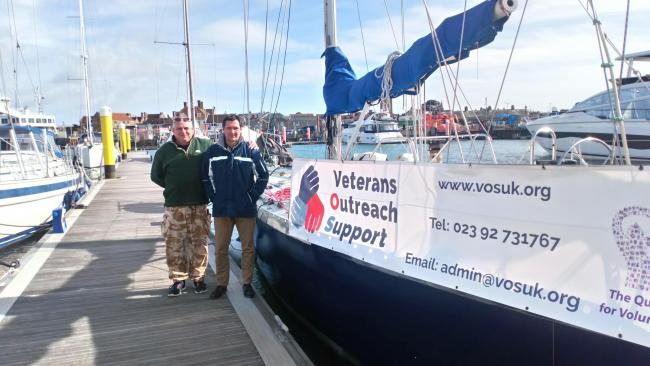 David Bridges (left) and Simon Layton with yacht Aries
David Bridges (left) and Simon Layton with yacht Aries
David from the Isle of Wight is a former member of the Armed Forces who suffers from Post-Traumatic Stress Disorder. He served several tours in Northern Ireland and Bosnia and after military service was a finance director of a bank in Jersey but took early retirement after the onset of PTSD and moving to the Island.
He said: "PTSD is a mental condition which affects the brain. It makes me hyper-observant and I'm always looking around to see if I am going to be affected by any trouble around me. It's caused through combat, or what I have seen doing my duty. It gradually hit me ten years after leaving the army and I slipped into depression. I see a psychiatrist who thinks this challenge will give me an objective and will be a calming influence on me."
The pair set off from Yarmouth (IOW) and having picked up a crew member in Portsmouth, continued along the English Channel and then north via Scarborough and Wick, round the north of Scotland followed by Cape Wrath and southwards taking in Kinlochbervie, Skye and Tobermory before entering Belfast Lough.
David's sponsors include the car dealership Esplanade, and IT Specialists, RDS Global. The fundraising page for VOS is here
Bangor Marina's COVID-19 Concession to Berth Holders
Last week the Quay Marinas/Dean & Reddyhoff Bangor marina closed, a victim of the COVID-19 Government restrictions in Northern Ireland.
As Afloat reported previously, the Five Anchor Marina on Belfast Lough announced that from this Spring it would become part of a single marina group, boatfolk.
With access to the pontoons and the marina building forbidden when strict social distancing measures were introduced a week ago, the company is introducing a new loyalty scheme for all customers who have signed up for an annual berthing licence from 1st April 2020 to March 2021. They will receive an automatic credit on their account, equivalent to 50% of their April berthing fees. So this month’s berthing will be half price. In a few weeks’ time, the scheme will be reviewed and if it is thought the right thing to do, there will be “top up” again in May if the lockdown continues.
This latest communication says “As a business, we believe our responsibility to our berth holders and our customers comes before anything else and we are passionate about operating ethically. When strict social distancing measures were introduced a week ago, the government guidance meant we had to close our marinas to our customers; something we thought we would never have to do. We quickly made the decision to pay our staff 100% of their wages in April (even if they are not working), and we are continuing to pay our suppliers and our landlords in full and on time. This is the right thing to do as we must all support each other to come through this period united”.
For those who have not yet confirmed a berth for the year, but do so by Friday 10th April, they can either take the credit as a discount off the annual berth this year, or “bank it” to use over the next 12 months on a range of services, including boatyard lifting and storage, boatcare services, or to put towards next year’s berthing fees.
The marina teams are checking lines and fenders each day and keep the marinas shipshape.
Bangor Marina Closes Under UK’s Three-Week Covid-19 Lockdown
Following last night’s announcement by Prime Minister Boris Johnson of a full lockdown in the UK over the next three weeks, Bangor Marina in Northern Ireland has closed and is asking customers to stay away for the duration of the lockdown period to help reduce the spread of Covid-19.
In a statement on their Facebook page, the marina team said: “We wish to act responsibly, and in line with Government advice. So although it goes against everything we stand for, we have to ask our customers to keep away from Bangor Marina until the situation improves. Not easy, with bright and beautiful weather out there.
“We can only hope that by us all taking these restrictions seriously we can reduce the spread of this horrible disease, so that we can all get back on the water soon, in time to enjoy the summer boating season in July and August.”
As from today, Tuesday 24 March, Bangor Marina is taking the following steps:
- Customers should not be visiting our Bangor Marina, but should be following UK Government advice and avoiding all non-essential travel, including visiting their boat.
- The marina reception is closed. Most of the office-based team are now working remotely, so pick up the phone or email as you normally would. They will do their best to answer any questions or enquiries you may have about berthing or the operation of the marina. You can continue to make payments in all the usual ways, including through our online portal.
- Customers are respectfully asked not to ‘quarantine’ or ‘isolate’ themselves on their boats. You should remain in your primary residence. The marina insists its staff are “still busy looking after your boat”.
- If you haven’t yet confirmed your berthing plans for the next few months, please do so as soon as possible.
“We understand what a difficult time this is, but our whole team are firmly focused on riding out this storm with you, and we remain hopeful that the clouds will pass in time for us all to make the most of our summer boating season later in the year,” the statement added.
It’s expected that all marinas and sailing, boat and yacht clubs in Northern Ireland and Great Britain will be closed for the lockdown period, which will be reviewed by Easter Monday, 13 April.



























